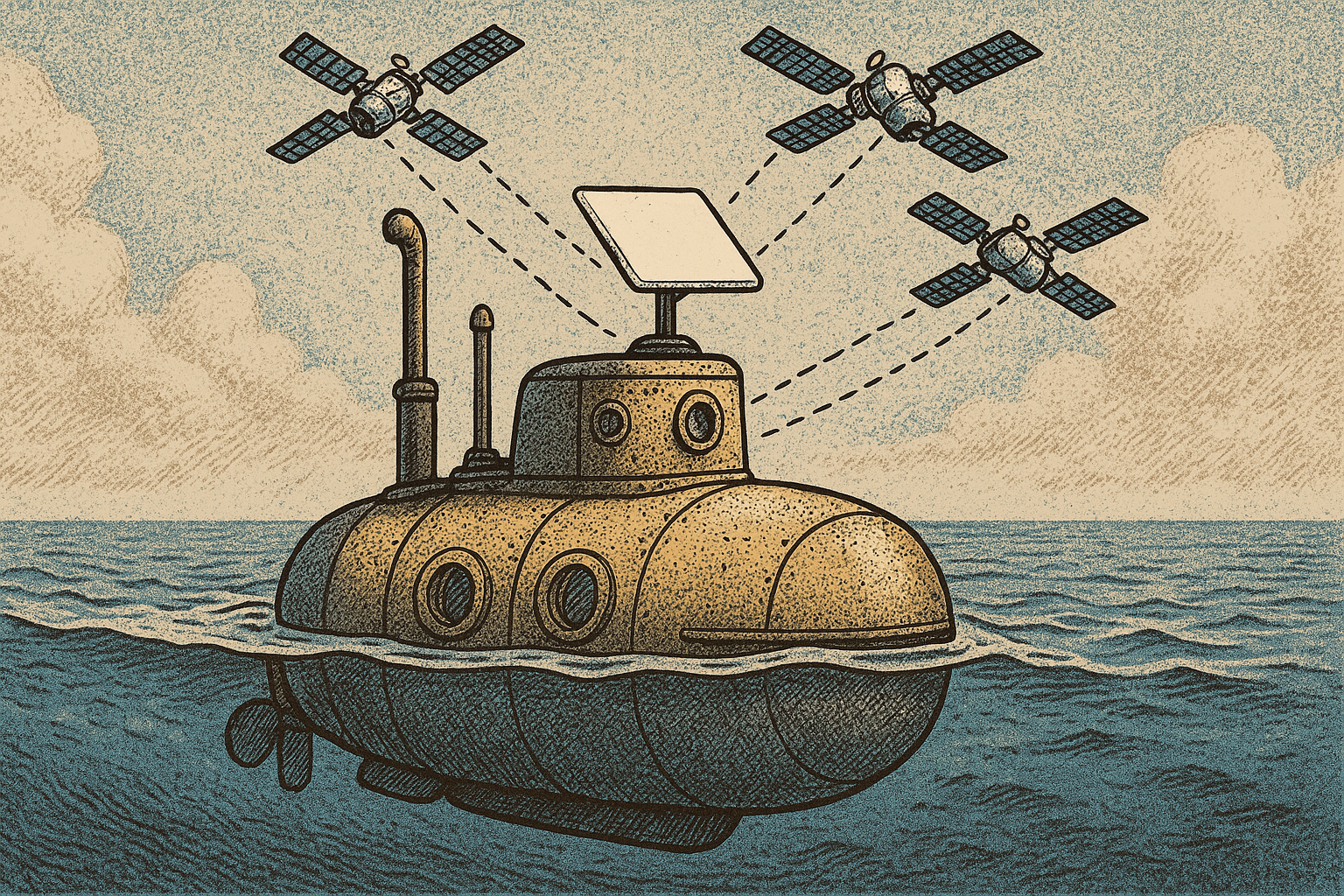In a striking example of how organized crime is embracing advanced technology, this week, Colombian authorities have seized a remote controlled, unmanned narco-submarine equipped with a Starlink satellite antenna, marking a new level of sophistication in the global drug trade.
The vessel, discovered off the Caribbean coast near Santa Marta, according to the Colombian Navy. While no drugs were found onboard, officials believe the vessel is capable of carrying up to 1.5 tons of drugs, and she was undergoing testing for future smuggling operations.
This reflects the migration toward more sophisticated unmanned systems, which enhance evasion capabilities, hinder radar detection, and even allow for autonomous operations by criminal networks.
said Admiral Juan Ricardo Rozo, Commander of the Colombian Navy, during a press conference.
The submarine’s Starlink antenna, confirmed by Navy sources to be an authentic device from Elon Musk’s satellite internet service, enables real-time communication and navigation control over vast distances, even on open waters traditionally beyond cellular or conventional satellite coverage.

The use of so-called narco-submarines is not new to Colombia, which remains the world’s largest coca producer, accounting for 67% of global cultivation according to the latest United Nations report. But authorities warn that recent models are significantly more difficult to detect and intercept.
Unlike older models requiring onboard crews, these unmanned submersibles operate via remote control and, in some cases, with partial autonomy. Their hulls are engineered to minimize radar and thermal signatures, and some are reportedly equipped with self-destruct systems designed to prevent seizure and reverse-engineering.
This is a game of cat and mouse, and unfortunately, criminal innovation is evolving fast.
said Admiral Juan Ricardo Rozo, Commander of the Colombian Navy
Under Colombian law, the construction and use of semi-submersibles carry penalties of up to 14 years in prison. But tracking down those responsible remains a formidable challenge, as drug trafficking groups increasingly tap into global technologies from satellite networks to AI-powered navigation to outmaneuver authorities.
The rise of Starlink enabled narco-submarines also presents a rare, high-stakes opportunity for startups specializing in defense, maritime surveillance, and AI-powered detection. Tech companies developing AI-driven ocean monitoring, advanced radar systems, or even nanosatellite constellations are increasingly on the radar of defense agencies seeking to close the technology gap.
Startups in South Florida, a key U.S. gateway for maritime traffic and drug interdiction, could find themselves uniquely positioned to collaborate with law enforcement and defense contractors. The region’s emerging tech ecosystem, particularly in sectors like AI, robotics, and space-tech, could offer both talent and solutions to counter this new generation of criminal technology.

You must be logged in to post a comment.